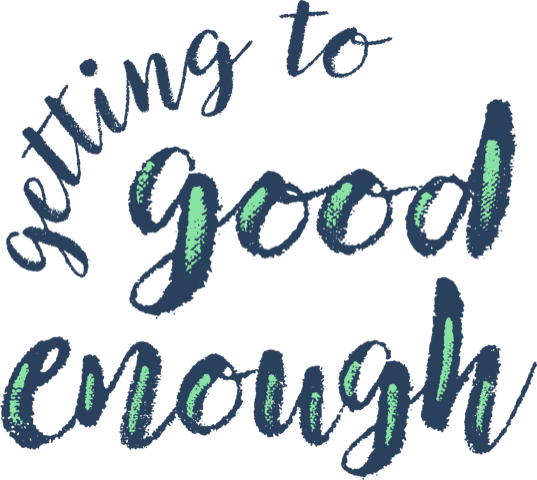
Perfectionists tend to have high standards. And that’s okay. But when those high standards are very rigid, life can become more difficult. This week, Shannon and Janine discuss the benefits of being more flexible and how go about building flexibility into your high standards.
Discussion topics include:
- How we’ve embraced flexibility in our podcast recording schedule
- Tangent #1: Janine and Shannon’s abiding love for the TV show Nashville (we ♥️ Deacon Claybourne)
- How one of the hallmarks of perfectionism is being rigid with expectations and standards
- Practicing on the edge of discomfort to increase your self awareness around inflexibility
- Flexing your flexibility muscle
- An example of flexibility: letting go of the discomfort of seeing other people’s errors without correcting them
- How being flexible makes life easier, even when it means relaxing high standards
- Becoming aware of where you have rigidly high standards that are problematic, so that you can figure out ways to bring flexibility into them
- Tangent #2: Alanis Morissette’s (non-ironic) Ironic song
- Embracing flexibility in creating routines to allow you to stick with the routine
- Creating flexibility around your standards of flexibility
Links:
- Alanis Morissette updates “Ironic” lyrics: https://youtu.be/6GVJpOmaDyU

I recognized myself in the spotting-typos discussion. Having had a father who was an investigative reporter and a mother who was a college English professor — and having been a voracious reader all my life — I didn’t stand a chance. It drives me crazy that other people’s typos drive me crazy! I find it really annoying in myself that I catch every single typo. It’s a blessing and a curse.
I was an eighth-grade English teacher myself. The students who I had in class were brought up in the whole language movement where everything you did was terrific. My job title was Language Arts teacher, but I was an English teacher all the way. I never used red pen, but I would mark up my students’ papers and expect them to revise them. They were shocked, but their parents were delighted! I always had them write a short essay on the first day of class as homework and kept it. After six weeks of being in my class, I gave them back their papers. They saw so much improvement in just those six weeks that they stopped complaining about how much homework I gave out. (To be fair, I told them on the first day of school that I would probably give them homework every night…however, I would never give them homework over a school break or a long weekend. And I always kept that promise.) During my last year of teaching, I had a college professor grade their first and last papers and comment on their ability and provide them with what grade they would have gotten in her class. In almost every case, students improved by a full grade or two, and a few even jumped from a D to an A!
One good thing about being a good proofreader and editor is that my dearest and longest friend has been able to use my skills for good rather than evil. She is a founder of a nonprofit agency and has devoted her life to domestic hunger relief. She asks me to read her grant proposals with a red pen!